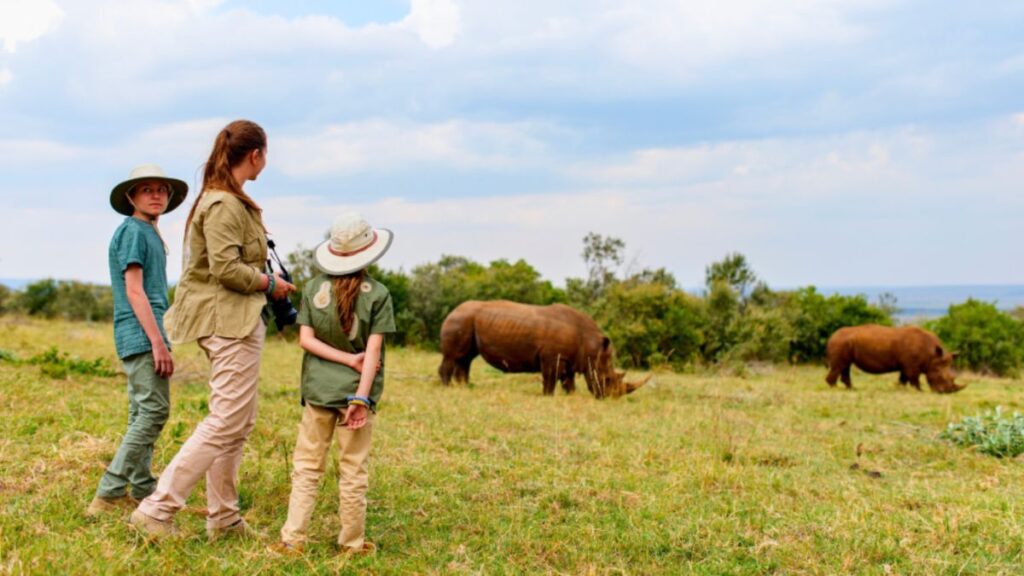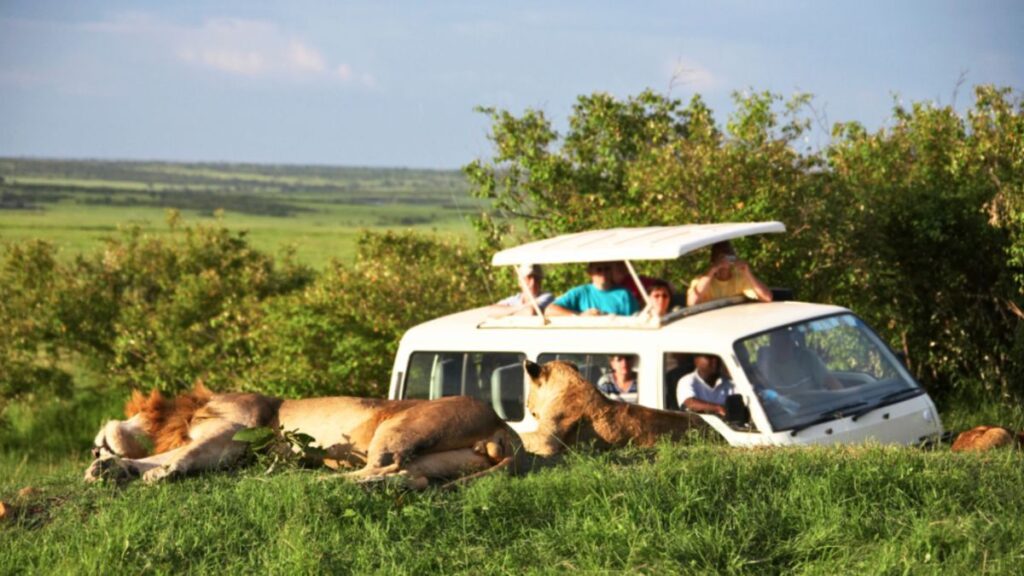Safari Africa Experience: Sustainable
Tourism and Responsible Travel Practices
Safari Africa Experience
Many travelers dream of witnessing Africa’s incredible wildlife but worry about the impact their visit might have on delicate ecosystems and local communities. The tourism industry has sometimes caused harm to the very places and animals people want to protect, creating a difficult situation for conscious travelers who want to explore responsibly.

Dorian Destinations understands these concerns and connects travelers with ethical safari operators who put conservation and community support at the heart of their operations. Our carefully selected partners work directly with local communities, fund wildlife protection programs, and create meaningful experiences that benefit both visitors and the places they explore.
Sustainable Travel Experiences
Understanding Sustainable Safari Tourism
Sustainable tourism means traveling in ways that protect the environment while supporting local people and their economies. When you choose a responsible safari, you can actively support conservation efforts and reduce pressure on fragile ecosystems. This approach helps preserve Africa’s natural wonders for future generations.
Your travel choices directly impact wildlife habitats and local communities. Many responsible safari operators allocate a portion of visitor spending to fund anti-poaching efforts, habitat restoration, and community development projects. This creates a positive cycle where tourism dollars help protect the very animals and landscapes you come to see.
The Environmental Impact of Traditional Tourism
Some safari operations have historically prioritized short-term profits over long-term environmental and community outcomes. Large tourist groups can disturb wildlife behavior patterns and damage sensitive habitats through vehicle traffic and noise pollution. In some cases, operators have constructed facilities in protected areas without conducting thorough environmental impact assessments.
Overcrowding at popular wildlife viewing spots creates stress for animals and degrades the natural experience for visitors. When too many vehicles surround animals, it can interfere with their feeding, mating, and migration patterns. This type of tourism ultimately harms the wildlife it claims to celebrate.

How Responsible Travel Makes a Difference
Responsible safari operators limit group sizes to reduce environmental impact and provide more intimate wildlife encounters. They train guides to maintain respectful distances from animals and follow strict protocols that prioritize animal welfare over photo opportunities. These practices create better experiences for both wildlife and visitors.
Community-based tourism models share profits directly with local people and involve them in management decisions. This enhances equitable benefit sharing, supports long-term sustainability, and gives communities strong reasons to protect wildlife habitats. When communities receive financial benefits from conservation, they are motivated to actively protect endangered species and their ecosystems. In many contexts, this approach has proven more effective than conservation models that exclude local populations.
Choosing Eco-Friendly Accommodations
Sustainable safari lodges use renewable energy sources like solar power and implement water conservation systems to minimize their environmental footprint. Some lodges aim for carbon neutrality through resource management and offset programs. These facilities are often designed to blend with their natural surroundings, using local materials and traditional building techniques.
Green accommodations also support local employment by hiring from nearby communities and sourcing food from regional farmers. They provide training opportunities that help local people develop valuable hospitality skills. This creates lasting economic benefits that extend far beyond your visit.
Wildlife Conservation Through Tourism
In many cases, safari fees contribute significantly to conservation efforts, including anti-poaching patrols, wildlife monitoring, and habitat protection initiatives. These revenues are often complemented by government and NGO support. Many parks and reserves depend on tourism revenue to maintain operations and expand conservation efforts, and numerous sites have struggled when visitor revenue drops.
Research programs benefit from tourism funding, allowing scientists to study animal behavior, track migration patterns, and develop new conservation strategies. Some safari programs invite visitors to contribute to citizen science projects, such as reporting wildlife sightings or assisting with guided data collection. This collaboration between tourists and researchers advances our understanding of African ecosystems.
Supporting Local Communities
Community-based tourism programs create jobs and income opportunities for people living near wildlife areas. Local guides, craftspeople, farmers, and service providers all benefit when visitors choose responsible tour operators. These economic opportunities provide alternatives to activities that might harm wildlife or habitats.
Cultural exchange programs allow visitors to learn about traditional ways of life while supporting local customs and knowledge systems. Many communities have lived alongside wildlife for generations and possess valuable insights about animal behavior and ecosystem management. Respectful cultural tourism helps preserve these traditions.
Ethical Wildlife Interactions
Responsible safari operators maintain strict guidelines about wildlife interactions to protect both animals and visitors. They avoid attractions that exploit animals for entertainment, such as elephant rides or photo opportunities with sedated predators. Instead, they focus on observing animals in their natural behaviors and habitats while adhering to national wildlife protection laws and international guidelines.
Professional guides understand animal body language and stress signals, knowing when to move away to avoid disturbing wildlife. They educate visitors about appropriate behavior around different species and explain how human actions can affect animal welfare. This knowledge helps create more meaningful and respectful wildlife encounters.
Planning Your Responsible Safari Africa Experience
Research tour operators carefully, looking for certifications from recognized sustainable tourism organizations and evidence of genuine community partnerships. Ask specific questions about their conservation contributions, employment practices, and environmental policies. Responsible operators will be transparent about their practices and happy to share details about their impact.
Prepare for your safari by learning about the destinations you will visit, including local customs, wildlife species, and conservation challenges. This knowledge helps you appreciate your experiences more deeply and interact more respectfully with both people and wildlife. Where possible, consider extending your stay and, when practical, reducing travel frequency to lower per-day travel emissions and support local economies more substantially.
People Also Ask
What Makes a Safari Truly Sustainable?
A safari becomes truly sustainable when it balances environmental protection, community benefits, and economic viability over the long term. This includes supporting wildlife conservation, providing fair employment to local communities, using eco-friendly practices, and maintaining financial sustainability that allows for continued positive impact.
How Can I Verify a Safari Operator’s Conservation Claims?
You can verify conservation claims by researching certifications from organizations like the Global Sustainable Tourism Council, checking for partnerships with recognized conservation groups, and asking for specific examples of funded projects. Look for transparent reporting about conservation contributions and community benefits.
Do Sustainable Safaris Cost More Than Traditional Options?
While sustainable safaris may have higher upfront costs, some operators reinvest surplus funds to subsidize conservation and local community programs. These trips often provide greater value through longer stays, smaller groups, and more meaningful experiences. The additional cost typically supports conservation and community programs, making your travel investment contribute to a positive long-term impact.
Can Families With Children Participate in Responsible Safari Tourism?
Yes, families with children can absolutely participate in responsible safari tourism, and many programs specifically cater to family education and engagement. Children often become passionate advocates for wildlife conservation after experiencing responsible safari programs that emphasize education and respect for nature.
What Should I Pack for a Sustainable Safari?
Pack reusable water bottles, biodegradable toiletries, neutral-colored or earth-toned clothing made from sustainable materials, and reef-safe sunscreen to minimize environmental impact. Avoid single-use items and bring rechargeable batteries for electronic devices. Consider also bringing reusable chargers or solar-powered gadgets to further reduce electronic waste. Many sustainable lodges provide suggested packing lists to help guests minimize environmental impact.
Sustainable Safari Tourism

Dorian Destinations believes that travel should create positive change in the world, and sustainable safari tourism offers an incredible opportunity to support wildlife conservation while experiencing Africa’s natural wonders. When you choose responsible operators, your adventure becomes part of the solution to conservation challenges rather than contributing to environmental problems. Every conscious travel choice helps build a more sustainable future for African wildlife and communities.
The memories and insights gained from a responsible safari experience extend far beyond your journey, inspiring continued support for conservation efforts and cultural understanding. Dorian Destinations connects you with operators who share these values, creating transformative experiences that benefit everyone involved. Your commitment to sustainable travel helps preserve Africa’s incredible biodiversity and cultural heritage for generations to come.
and Support Conservation Efforts
Dorian Destinations
(305) 440-9200


